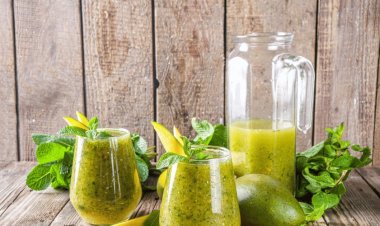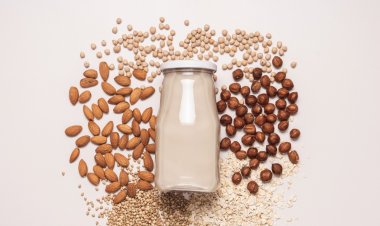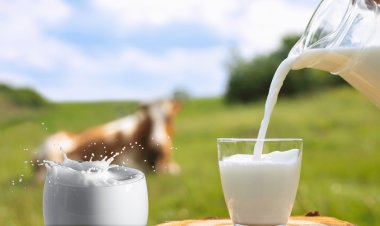Plant-based milk: Check Advantages, Types and More
Curious about plant-based milk? Get the lowdown on this trendy beverage: benefits, drawbacks, different types, and how to choose the right one for you. Discover lactose-free alternatives, sustainable options, and delicious plant-powered goodness!

Plant-based milk, also known as dairy-free milk or non-dairy milk, has become increasingly popular in recent years. As the name suggests, it's a beverage made from various plant sources, primarily nuts, seeds, grains, and legumes, as an alternative to traditional cow's milk.
Types of Plant-Based Milk:
There's a wide variety of plant-based milk options available, each with its own unique flavor and nutritional profile. Here are some of the most common:
- Nut milks: Almond milk, cashew milk, hazelnut milk, pecan milk, macadamia milk
- Seed milks: Soy milk, oat milk, hemp milk, flaxseed milk, pumpkin seed milk
- Grain milks: Rice milk, quinoa milk, corn milk, spelt milk
- Legume milks: Pea milk, peanut milk, lupin milk
Advantages of Plant-Based Milk:
- Lactose-free: Suitable for people with lactose intolerance or dairy allergies.
- Cholesterol-free: Contains no cholesterol, unlike cow's milk.
- Lower in saturated fat: Some plant-based milk options are lower in saturated fat than whole cow's milk.
- Fortified with nutrients: Often fortified with calcium, vitamin D, and other essential nutrients.
- Sustainable: Generally considered more environmentally sustainable than cow's milk production.
- Variety of flavors and textures: Offers a diverse range of tastes and textures for different preferences.
Disadvantages of Plant-Based Milk:
- Lower in protein: Most plant-based milk options are lower in protein than cow's milk.
- Added sugars: Some brands may contain added sugars, so checking the label is important.
- Fortification concerns: Fortification levels can vary between brands, requiring careful selection.
- Higher cost: Generally more expensive than cow's milk.
- May not be suitable for everyone: Some people may have allergies or sensitivities to certain plant ingredients.
Choosing the Right Plant-Based Milk:
The "best" plant-based milk depends on your individual needs and preferences. Consider factors like:
- Taste: Experiment with different types to find your favorite flavor.
- Nutritional needs: Choose a milk fortified with the nutrients you need (e.g., calcium, protein).
- Dietary restrictions: Opt for options suited to your allergies or intolerances.
- Sustainability: Consider the environmental impact of different production processes.
Ultimately, plant-based milk offers a versatile and increasingly popular alternative to cow's milk. By understanding its benefits, drawbacks, and various options, you can make an informed choice that aligns with your health and wellness goals.
What's Your Reaction?
 Like
0
Like
0
 Dislike
0
Dislike
0
 Love
0
Love
0
 Funny
0
Funny
0
 Angry
0
Angry
0
 Sad
0
Sad
0
 Wow
0
Wow
0





































































































